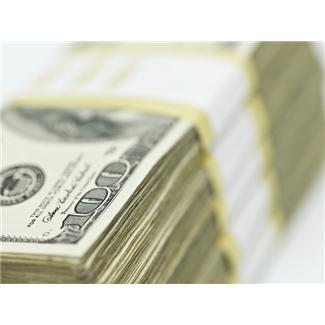| Home | About | Archives | RSS Feed |

The Independent Investor: The Coming Currency War
 |
The International Monetary Fund and its members were in no mood to agree on a unified policy of currency movements at their weekend meeting in Toronto. Finger pointing and veiled threats of retaliation were hurled at China from both American and European members, among others. Underneath all the rhetoric, I fear we are in a race to the bottom as countries vie to reduce the value of their own currencies while demanding that others strengthen theirs.
Back in early 2009, in several columns, I speculated that just about every country in the world would try to export their way out of recession. In order to do that, each country would endeavor to keep their currency as cheap as they could, thereby reducing the prices of their exports. It’s also a fact that some countries (Brazil, India, China) weathered the world recession far better than others. Critics argue that part of the reason that occurred was that these countries contrived to keep their currencies artificially low and continued to export as much as they could.
Unfortunately, today the world still grabbles with high unemployment and an economic recovery that is anemic at best. As deficits mount and governments scramble to increase the pace of growth, each country is vying to take an increasing share of a shrinking global economic pie. It is the real cause of this war of words which could soon take on a much more concrete form of expression.
China, due to its size and economic prowess, has been singled out as the main culprit in this on-going currency manipulation. Over the weekend, the Chinese resisted demands to strengthen their currency. They argued that they were already beginning to do so, but “gradually”. They warned that if their currency, the yuan, did not remain stable, it would bring disaster to China and the world.
This was seen by the United States as just more stonewalling. Unfortunately, lawmakers are meeting this week to consider punitive measures against China for undervaluing their currency. Called the “Currency Reform for Fair Trade Act," the legislation is intended to make it harder for the Commerce Department to ignore taking retaliatory actions against Chinese exports that are judged to be benefiting from a weak currency. The passage of such a bill could easily ignite a trade war where we levy duties or outright ban Chinese import A, while China retaliates by doing the same to U.S. import B.
To date, the White House has been able to short circuit any Commerce Department recommendations for any trade embargos that Congress has demanded. People such as U.S. Treasurer Tim Geithner have chosen a less strident approach in convincing other nations to compromise on the currency question. But if this bill passes the landscape could change quickly. It is just this kind of protectionist legislation that extended and prolonged our own Great Depression and that of the rest of the world in the 1930s.
However, before we cast all the blame on China, consider this: many other countries (including our own) are participating in this currency race to the bottom. The Japanese, for example, over the past month have continually intervened to slow the rise of the yen, which is hurting their exports. So far the price tag for that intervention has cost them 2 trillion yen.
Here at home, the Federal Reserve’s announcement in September that a second tranche of quantitative easing (QE II) is in the works has shaved 7 percent off the greenback’s value in less than three weeks. Last Friday, the Brazilians spent billions to weaken their own currency, the real, and over in Europe the Swiss have been doing the same for months. The euro, thanks to the PIGS (Portugal-Italy-Greece-Spain) crisis, has had its own ups and downs.
Since the dollar is still the world’s main reserve currency and it is dropping in value (as is every other currency at the same time) it makes sense that commodities have suddenly caught fire. Since commodities are denominated in U.S. dollars, their value continues to rise as the dollar declines. In a currency war where paper currencies become increasingly suspect and valueless, proxies will appear. This is what I believe is driving the price of gold to new highs. As long as world players insist on growing at the expense of their neighbors, you can expect commodities to continue to rise.
| Tags: currency |

